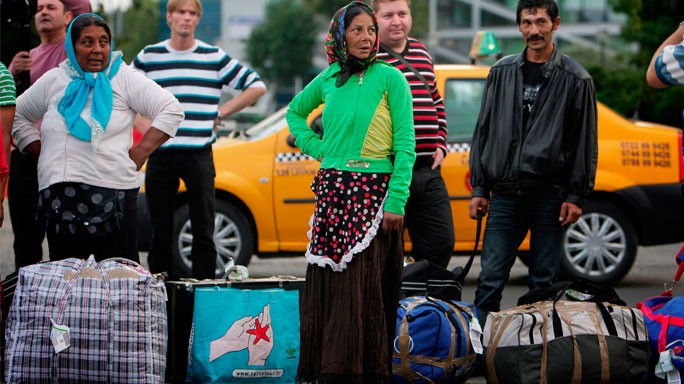A two-room apartment for 1,700 euros ($1,917) a month shared among 18 men - that's what Berlin was to Dimitru Cubylyass. His cousin had told him about good job opportunities and decent wages, which prompted Cubylyass to travel around 1,500 kilometers (932 miles) to Germany, leaving his Romanian home behind.
Everything went smoothly in the beginning. The 36-year-old carried bags of cement or parquet flooring at a building site of the Mall of Berlin shopping center. During the first few weeks, he regularly received his wage of five to six euros per hour. But soon wage payments became sporadic and petered out completely for him and 30 other Romanian workers. Furthermore, the work contract that had been promised to him did not materialize.
Exploiting people's insecurity
That's a typical case of systematic exploitation, says Dominique John. The trade unionist is in charge of a project called "Faire Mobilität" (fair mobility). He argues that eastern European workers are the hardest hit. Private job placement agencies take advantage of insufficient language skills and poor knowledge of legal stipulations.
"On top of that, those agencies often link job and accommodation contracts. When affected workers get sick or are no longer willing to stomach adverse conditions, they may well become homeless," John says.
See more:
DW's Carmen Meyer reports





